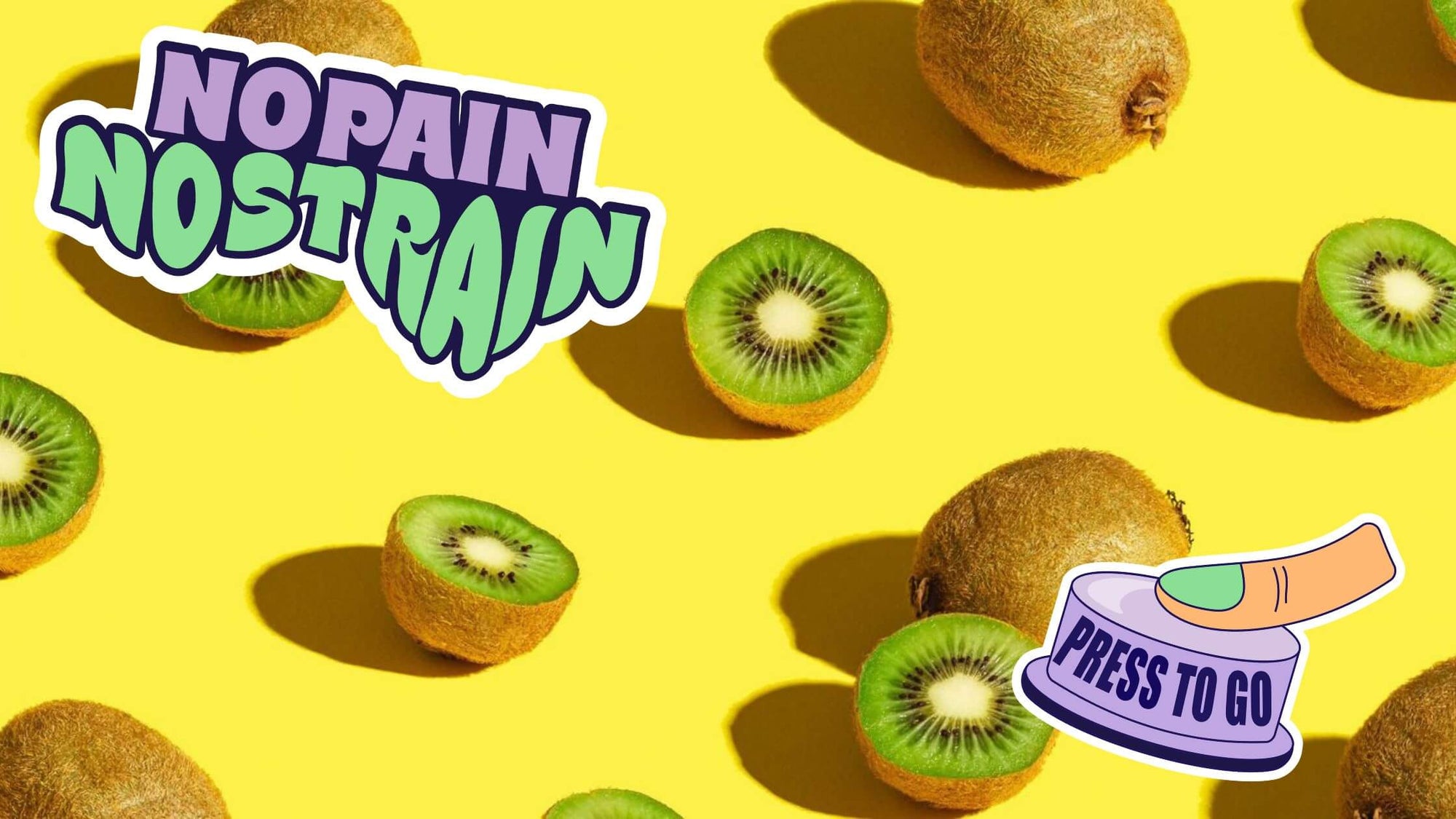Constipation is one of the most common digestive symptoms that people of all ages and from all backgrounds can experience. For some, it’s an ongoing issue, and for others, it’s something that only rears its ugly head every once in a while.
Constipation can lead to bloating and abdominal discomfort. Annoyingly, it can appear at any moment and seemingly all of a sudden. But why does this happen? Why can constipation appear without any prior warning or symptoms?
We’re going to answer these questions in today’s article, as well as covering the symptoms of constipation and tips to relieve it.
What Are the Symptoms of Constipation?
Constipation affects about one in every five people across the world, and it tends to manifest in a very similar way for every person, even if the root causes are different.
Its symptoms include bloating, abdominal pains, and a feeling of tightness or fullness in the lower abdomen (caused by a buildup of stools in the colon and rectum). When you eventually go to the toilet, the stools might be hard and painful to pass.
Constipation can be defined as a reduction in bowel movements to less than three a week. You might be reading this and thinking ‘well, I only ever go two to three times a week, so does that mean I am constantly constipated?’
Well, technically, in order to be constipated, you need to be experiencing a reduction in your usual bowel movement regularity. The key word here is ‘usual’. If you normally go to the toilet every day and, suddenly, you’re only passing one bowel movement a week, you’re constipated. If you go to the loo three times a week and it has always been this way, it doesn’t technically mean that you’re constipated, as this is your normal toilet pattern anyway (I hope this makes sense!).
What Can Trigger Sudden Constipation?
Constipation can result from a number of different things, which can make it tough to avoid it or find effective natural constipation-relieving strategies. However, the most common causes of sudden or acute constipation are the following.
1. Eating too many indulgent foods
We’ve all been there. There’s a huge buffet of food with various snacks and desserts, all of which look amazing, and you can’t help but go back for a second, third, or fourth plate of food. Whilst there’s absolutely nothing wrong with indulging in all of your favourite foods every once in a while, doing so could lead to sudden constipation.
Buffet foods tend to be high in saturated fat and sugar. Both saturated fat and sugar can wreak havoc on the digestive system and cause it to slow down. In turn, food takes longer to move through your gastrointestinal tract and gets ‘stuck’ in the lower part of the tract.
2. Reduced fibre intake
Fibre is essential for a healthy digestive system and optimal digestive function. Insoluble fibre enters the colon undigested and gets fermented by the gut bacteria. It softens the stool and reduces the risk of constipation and inflammation in the bowel.
Not consuming enough foods that contain insoluble fibre (such as wheat bran and nuts) can, therefore, cause a harder stool and increase your risk of experiencing acute constipation.
3. Not drinking enough water
Dehydration is one of the most common but most easily resolved causes of constipation. Your body needs water to keep the stool soft.
If you don’t drink enough fluids, more water will be reabsorbed from your stool into the bloodstream to help maintain optimal blood volume and pressure. This causes the stool to harden and makes it much harder to pass.
4. Drinking a lot of alcohol or caffeine
Both alcohol and caffeine are diuretics, meaning they cause you to urinate more. The more urine you pass, the more fluid you lose! Therefore, going on a night out and drinking several alcoholic beverages or downing many coffees to get through a night of last-minute revision for an exam can cause you to become dehydrated and constipated.
5. Taking new medications
Another reason why constipation happens is by taking a new medication. Certain medications, such as thiazides and loop diuretics, can increase fluid loss from the body, leading to dehydration and subsequent constipation.
Other medications like calcium channel blockers and opioids slow down gut motility and cause digested food to move more slowly through the lower gastrointestinal tract, allowing for more water to be absorbed from the stool so it hardens and gets stuck.
6. Laxative use
Although laxatives are a common fix for constipation, they can actually be a cause of this issue themselves. Laxatives work in a few different ways. Osmotic laxatives and softening laxatives work by increasing water retention in the colon or causing the stool to absorb more water from the colon lumen.
You lose this water when you pass the stool into the toilet. This increases water loss and can eventually lead to further constipation.
7. Lack of physical activity
Being sedentary is one of the most common causes of bloating and constipation. When you’re sitting down for a long period of time, it causes your gut motility to slow down. Gut motility refers to the rate at which food moves through your gastrointestinal tract. There are a lot of different things that can influence your gut motility, and your physical activity level is one of the most influential factors.
When you’re sitting down for a long time, it causes temporary constipation, and most of the time, when you’re able to get your body moving, it encourages things to get moving in your gut too! You’re particularly prone to constipation caused by being sedentary if you’re usually very active, as your body will be used to the physical movement, which usually helps foods move through your digestive system.
When food sits in your colon for a longer period of time than it normally would, it causes a harder stool. This is because the body will pull water from the stool to use this water elsewhere. A harder stool will a lot more difficult and painful to pass and could take several hours or even days longer to actually move out of your body than a softer stool
8. Travel or changes in your routine
When you’re travelling, you tend to be sitting down for long periods of time due to being dry stuck on a plane, on a train, or in a car. As I have just mentioned above, being sedentary can increase the risk of constipation because it reduces gut motility and causes food to move more slowly through your digestive tract.
Travel bloat is a common thing, and I have no doubt that you and most people you know have experienced it at many times in the past. I have definitely had travel-related bloating before so I know how annoying it can be!
Holiday constipation is also relatively common because most people spend their holidays relaxing and doing very little physical activity. In a similar way to long-haul travel, vacationing slows down the rate at which food moves through the gut and increases the chance of things getting ‘stuck’.
Combine being sedentary with the increase in fat, salt and, sugar, and the decrease in potassium and fibre that is often the case when you’re on holiday, and you’ve got yourself a recipe for bloating!
9. Psychological stress
Stress causes the release of cortisol, which is a hormone that diverts blood away from the digestive tract. With less blood flowing through your digestive system, food breakdown and nutrient absorption are hindered, causing reduced gut motility and a higher risk of constipation.
If you’ve had a particularly stressful day, you might find that you’re suddenly constipated for this reason. Don’t worry though! As soon as you wind down and relax, you should be able to take a trip to the toilet (assuming you don’t have any other underlying issues that are causing you to feel constipated)!
10. Hormonal changes
Daily fluctuations in hormones can influence your digestion. Cortisol, the main ‘stress hormone’ is supposed to fluctuate throughout the day, been highest in the morning and lowest in the evening. However, if you’re particularly stressed, these fluctuations become more pronounced and can negatively impact your gut health and function.
Larger than normal fluctuations in the female reproductive hormones, oestrogen and progesterone, can also cause constipation and bloating. These hormones cause water to get pulled out of the colon, drying the stool and making it harder to pass. This is the reason why females tend to be more prone to acute constipation than males.
You might experience systems fluctuations in your reproductive hormones if you have a reproductive health issue like hypothalamic amenorrhea (HA), polycystic ovary syndrome (PCOS), or endometriosis. These conditions can disrupt the natural ebb and flow of the sex hormones, leading to various side effects, which may include bloating and constipation.
Tips to Relieve Constipation
So, I have covered the symptoms of sudden constipation and its main causes. Now let’s have a look at some helpful daily strategies you can use to beat constipation long term.
Practice stress management
Reducing your stress is key for lowering your cortisol, improving your digestive health, and keeping constipation at bay. There are lots of helpful stress-relieving strategies you can try to calm your body and mind, including deep breathing (I recommend the 4-7-8 deep breathing technique), meditation, and gentle forms of exercise like yoga.
If you’ve had a particularly stressful day, try some of these strategies to reduce your cortisol and promote relaxation. You might find that just 10-15 minutes of your chosen stress management technique is enough to maintain great toilet regularity without needing to resort to taking a laxative.
Take a daily probiotic supplement
Probiotics are bacteria that are found naturally in the human gut microbiota. They include Bifidobacterium and Lactobacillus species of bacteria. There are billions of them, believe it or not (yes, you are more bacteria than you are human!), and they perform a few essential roles.
These bacteria produce vitamin B12, vitamin K, short-chain fatty acids, and gases, all of which are important not just for great digestion but also overall health. They also aid your endogenous digestive enzymes in metabolising ingested food to promote better digestion and reduce the risk of constipation.
You can eat probiotics in fermented foods like yoghurt, tempeh, kefir, miso, and pickles, or you can take them in the form of a supplement. I have a probiotic-rich supplement at Wild Dose called A Dose For Bloating. It combines two billion probiotic bacteria, seven digestive enzymes, and seven plant extracts to relieve bloating and constipation.
Get your body moving every day
Staying physically active is an amazing way to get rid of constipation naturally. Whether you take a daily walk, practice relaxing yoga, or head to the gym to lift some heavy weights, exercise can help to get things moving along your digestive tract and prevent a build-up of stools in your colon.
You’ll find that you experience sudden bouts of constipation much less frequently when you incorporate exercise into your daily routine.
Increase your fibre intake and cut back on processed foods
As I spoke about above, fibre is vital for maintaining healthy digestion and avoiding constipation. Increasing your fibre intake is a great remedy for getting rid of sudden constipation, and it’s something you can do pretty much straight away to get things moving down below!
Fibre-rich foods include rice, oats, pasta, bread, starchy vegetables (white potatoes, sweet potatoes, turnips, and parsnips), and fruits (apples, bananas, peaches, and pears). Eat plenty of these foods when you’re feeling bunged up, and you’re good to go.
Drink more water
Just one day of not drinking enough water could be enough to cause sudden constipation. If you find that you’re struggling to go to the toilet when you get home from work, try drinking a couple of glasses of water and seeing what happens. This might just do the trick to relieve your constipation!









